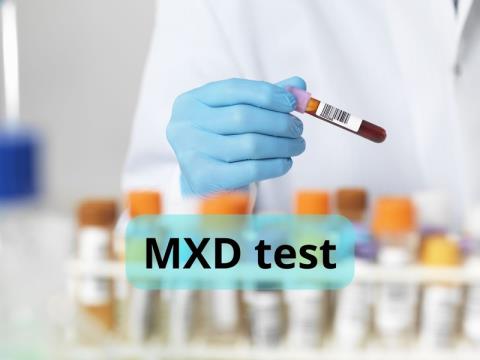Blood pressure and heart rate readings are two important health indicators and they are closely related. So what is the relationship between heart rate and blood pressure? What are they similar and different?
Blood pressure and heart rate are two separate health metrics, but both are related to the heart. These two indicators are extremely important and closely related to each other. So what is the difference as well as the relationship between heart rate and blood pressure?
How is heart rate different from blood pressure?
Before learning about the relationship between heart rate and blood pressure, we first need to understand the difference between the two. These two indicators often go hand in hand and have a relationship, but they are not the same.
Blood pressure is defined as the pressure of blood flowing in the artery walls. Blood vessels can be viewed as a system of conduit, which can expand or contract to control blood pressure. Heart rate is the number of times the heart beats in a minute. The heart rate is controlled by the heart's electrical system.
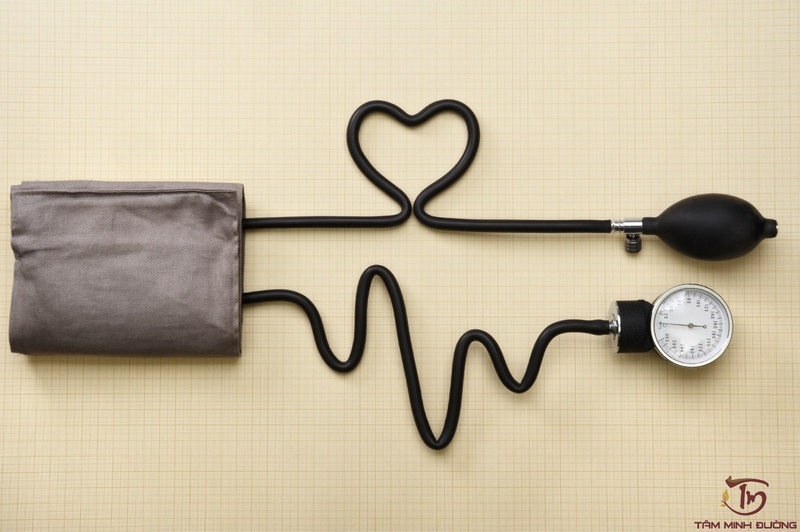 Heart rate and blood pressure often go hand in hand and have a relationship, but they are not the same.
Heart rate and blood pressure often go hand in hand and have a relationship, but they are not the same.
Every time the heart beats, it contracts and pushes blood through the network of arteries in the body. Blood pressure will rise briefly as the heart pushes out more blood to keep circulation going. Between beats, the heart rests and relieves pressure again. That's why each heartbeat feels like a beat rather than a continuous stream of pressure.
The ideal blood pressure is usually when the systolic pressure (meaning the blood pressure when the heart beats) is 120 mmHg and the diastolic pressure (meaning the blood pressure when the heart relaxes) is 80 mmHg. Meanwhile, the average resting heart rate is between 60 and 100 beats per minute (BPM) for an adult.
For patients with high blood pressure , you cannot measure heart rate as a substitute for measuring blood pressure. In contrast, for patients with cardiac arrhythmias , measuring the heart rate to diagnose and treat the disease remains the preferred test type.
Relationship between heart rate and blood pressure
Below, let's learn about the relationship between heart rate and blood pressure as well as the factors that affect these two indicators.
Does high blood pressure increase heart rate?
As you learn about the relationship between heart rate and blood pressure, you'll understand that heart rate and blood pressure really don't have to go up or down at the same time. An increase in heart rate does not increase blood pressure and vice versa. Although your heart beats more times per minute, healthy blood vessels dilate so blood can more easily flow through.
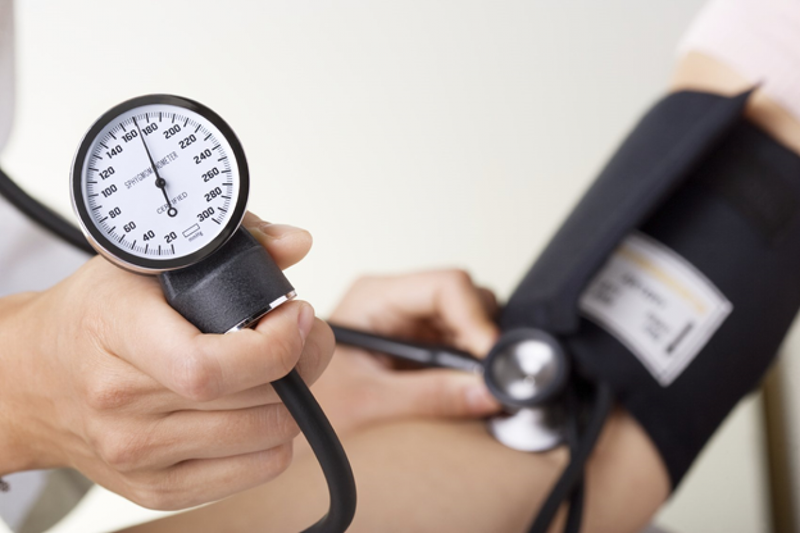 Heart rate and blood pressure really don't have to go up or down at the same time
Heart rate and blood pressure really don't have to go up or down at the same time
When we exercise, the heart rate will be faster to have more blood to meet the body's immediate needs. Heart rate can double but still be safe, while blood pressure can respond with only a slight increase.
However, in some cases, blood pressure and heart rate often rise and fall at the same time. For example, when you are stressed, maintain an unhealthy lifestyle, stay up late, smoke, etc., your blood pressure and heart rate can increase together and negatively affect your health.
How does heart rate affect blood pressure and health?
High blood pressure is a common condition and a major risk factor for cardiovascular disease and stroke . Meanwhile, a high heart rate increases the risk of high blood pressure, and for people who already have high blood pressure, an increased heart rate increases the risk of cardiovascular disease.
Although the relationship between heart rate and blood pressure is believed to be important for health, however, increased heart rate is not a major factor in selecting antihypertensive drugs . There is no evidence that the use of heart rate stabilizers can help treat high blood pressure. The use of antihypertensive drugs, especially those that affect heart rate, may not lower blood pressure.
Factors affecting blood pressure
To better understand the relationship between heart rate and blood pressure, we need to identify the factors that affect blood pressure to know when blood pressure rises or falls. Factors include:
- Weight: Being overweight or obese puts stress on the heart and blood vessels, contributing to high blood pressure.
- Diet: A diet too high in salt (sodium) and too little potassium puts the body at risk of high blood pressure.
- Level of physical activity: Being sedentary increases the risk of obesity, which negatively affects blood pressure.
- Medication use: Some medications can lower or increase blood pressure.
- Unhealthy lifestyle: Smoking, drinking a lot of alcohol and coffee, staying up late, pressure, stress all adversely affect the heart and blood vessels.
- Chronic diseases: Some chronic diseases such as kidney disease, diabetes, heart disease, etc. can affect blood pressure.
- Age: Blood pressure can increase or decrease as we get older.
 Factors affecting blood pressure
Factors affecting blood pressure
Factors affecting heart rate
The relationship between heart rate and blood pressure also shows that some factors that affect blood pressure will also affect heart rate. Influential factors include:
- Age: Average heart rate can vary between ages.
- Level of physical activity: The more physically active you are, the higher your heart rate will be.
- Smoking: Chemicals in cigarettes can increase heart rate and raise blood pressure.
- Chronic diseases: Certain diseases such as cardiovascular disease , high cholesterol, diabetes can also affect heart rate.
- Weight: The greater the body weight, the harder the heart has to work to meet the body's needs.
- Medications: Some medications, especially beta-blockers, can lower your heart rate or thyroid medications can increase your heart rate.
- Ambient temperature: Heart rate can change when the weather is too hot or too cold. On hot days, the heart will need to pump blood faster.
- Posture: Your heart rate will change when you stand up or lie down.
- Emotions: Anxiety, panic, stress, or extreme joy can increase heart rate.
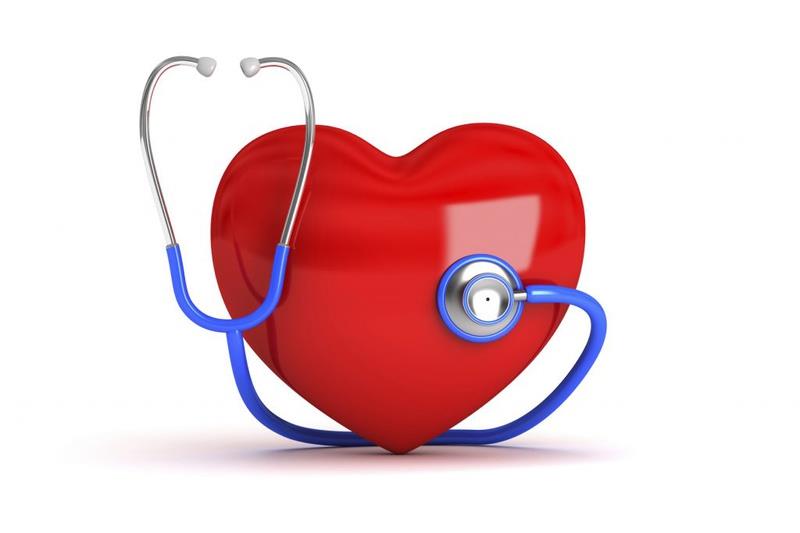 Age affects heart rate
Age affects heart rate
Hopefully, through this article, it will help you better understand the relationship between heart rate and blood pressure as well as the factors that affect these two indicators. Everyone should remember that good control of heart rate and blood pressure is the key to good health.

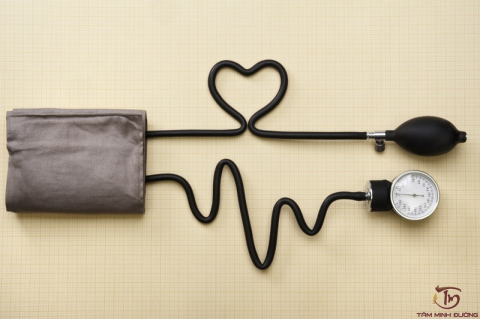
 Heart rate and blood pressure often go hand in hand and have a relationship, but they are not the same.
Heart rate and blood pressure often go hand in hand and have a relationship, but they are not the same. Heart rate and blood pressure really don't have to go up or down at the same time
Heart rate and blood pressure really don't have to go up or down at the same time Factors affecting blood pressure
Factors affecting blood pressure Age affects heart rate
Age affects heart rate



